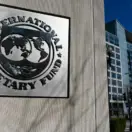Published in The News on January 29, 2021
LONDON: Most advanced economies can live with much higher levels of public debt after the coronavirus crisis, according to the IMF, which has said nations should “rethink” their public finance rules rather than rushing to reduce their liabilities.
After the financial crisis a decade ago the fund recommended that countries should reduce their debt levels. But Vitor Gaspar, the IMF’s head of fiscal policy, told the Financial Times that the main role of fiscal policy in the immediate future should be to be stimulative, to help restore economic growth, reduce unemployment and beat Covid-19.
The IMF’s position will provide support for the Biden administration’s battle to pass the new US president’s $1.9tn stimulus proposal in Congress, which amounts to about 9 per cent of US gross domestic product. It will also encourage the EU and UK not to worry about their sharp rises in public debt resulting from the crisis.
Speaking as the fund published its latest fiscal monitor database on Thursday, Mr Gaspar said the IMF’s change of heart towards a relaxed approach to high levels of public debt stemmed from central banks’ reduction in interest rates.
The drop in market funding costs means that, although advanced economies’ public debt has doubled as a share of GDP from 60 per cent to 120 per cent over the past 30 years, interest payments have halved from 4 per cent of GDP to 2 per cent.
This is “a development of major implications”, Mr Gaspar said. “The pressure to have debt coming down is something that we can let play out over a long time horizon and that the adjustment in the public debt ratio should be mostly gradual.”
The EU has suspended its fiscal rules, which expect countries to reduce debt to 60 per cent of GDP, and the UK is reviewing its fiscal framework.
Mr Gaspar recommended that countries should think again about the rules that guided
austerity policies of the past decade. “I believe that it’s timely to recognise that circumstances have changed in a way that justifies the rethinking of fiscal rules and fiscal frameworks,” he said.
There is little reason to tighten fiscal policy at all while interest rates are close to zero, Mr Gaspar added, even as some of the support offered to households and companies over the past year to help them cope with coronavirus is scaled back.
“We’re learning very fast about fiscal policy, about the interaction between fiscal and monetary policy, about the ability of fiscal policy to respond rapidly. And we have to be open minded about this,” he said.
“People have to take into account public finance risks and public debt sustainability, but they should recognise that if the pandemic is not put under control, the risks for the long-run prosperity of the economy and also for fiscal sustainability would be even greater.”
Nations’ first priority should be vaccination, while the reduction of public debt is now far down the list of urgent actions, according to the IMF. Mr Gaspar said that countries should think about “some debt anchor”, but this would need to apply in the long term only, and in the meantime countries should take a holistic view of the health of their public finances, including their public sector assets.
More emerging markets could also take this approach, he added; their access to global debt markets has improved significantly since the autumn, the IMF’s fiscal monitor showed.
In the poorest frontier markets, the fund noted that “prospects for market financing are improving”, but it warned that many of these countries remained vulnerable to debt distress.



